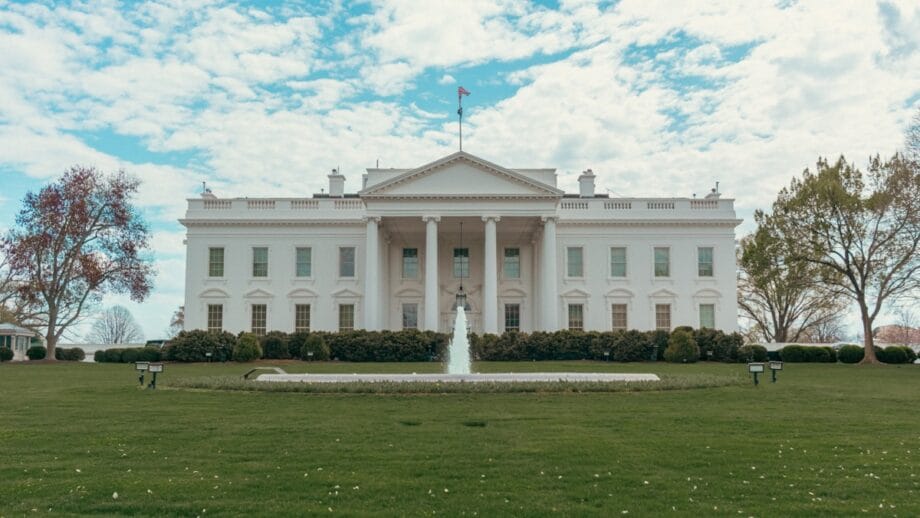Government Leaders Forge $350 Billion Pact on Advanced Technologies
WASHINGTON — In a significant display of transatlantic cooperation, President Trump and UK Prime Minister Keir Starmer formalized a joint memorandum of understanding on Thursday, heralding an investment of $350 billion into dynamic sectors such as artificial intelligence (AI), civil nuclear energy, and quantum computing.
The allied heads of state unveiled the Technology Prosperity Deal during a press conference held at Chequers, the British Prime Minister’s picturesque country residence in Buckinghamshire, northwest of London. They touted the agreement as a “win for both sides,” projecting the potential creation of 17,500 jobs in both nations.
“This visit has catalyzed $350 billion in investments across multiple domains, and we are resolute in ensuring the UK becomes a secure and dependable source for premier AI, hardware, and software globally — and we will deliver it in significant quantities,” President Trump asserted.
President Trump and UK Prime Minister Keir Starmer formalize a $350 billion investment memorandum focused on cutting-edge technologies. AP
In a lighter moment, Trump remarked it was “a better deal for you than us,” commending Starmer’s prowess as a negotiator, while the Prime Minister labeled the agreement a “good deal” for both nations.
“This framework positions us to navigate this new era cooperatively, aligning it with our shared values, and capitalizing on the remarkable opportunities that lie ahead,” explained Starmer to assembled reporters.
- “We have substantial investments from Nvidia, Nscale, OpenAI, Google, Salesforce, and numerous others, promising innovative British employment for years into the future.”
- The investments are projected to engender around 15,000 jobs in the UK, alongside the initiation of 12 advanced nuclear reactors in northern England. The United States estimates the creation of 2,500 jobs within its own borders.
The anticipated investments aim to generate approximately 15,000 jobs in the UK and establish 12 advanced nuclear reactors in northern England.
This accord is also set to enable power supply for as many as 1.5 million homes, with optimistic forecasts that this civil nuclear initiative will satisfactorily meet energy demands on both sides of the Atlantic.
Trump championed collaboration in “quantum computing, fusion, 6G, and civil nuclear energy,” stating that the memorandum incorporates a balance between deregulation and an impetus for innovation in these critical sectors.
James Burnham, the founder of an AI policy council launched in Washington this past July, relayed to The Post that initiatives in AI and quantum computing could dramatically decrease consumer costs by allowing various industries to function “at a speed and scale beyond human capability.”

“We have substantial investments from Nvidia, Nscale, OpenAI, Google, Salesforce, and others supporting cutting-edge jobs in the UK,” Starmer affirmed.
“This advancement has the potential to enhance quality of life significantly,” remarked Burnham, who previously held the distinguished role of chief legal advisor at the Department of Government Efficiency.
The forthcoming innovations are expected to primarily benefit consumer-centric sectors, enabling near-instantaneous travel bookings and simplifying the complexities of self-driving technology.
“Computers will take over tasks currently performed by humans,” Burnham elaborated. “AI promises substantial improvements in customer service and various back-office operations.”
Such advancements are also likely to catalyze growth in manufacturing sectors in both the US and the UK, he argued.
“From the installation of home batteries to the production of data centers and battery cells, a substantial amount of labor is necessary to facilitate the existence and expansion of these technologies.” Trump humorously noted the deal favored the UK, applauding Starmer for his negotiation skills.
The AI initiatives will encompass collaborative research programs and a space partnership between the US and UK. Furthermore, the agreement will underscore increased exports of semiconductor technology and data centers, alongside enhanced synergy between the US Center for AI Standards and Innovation and the UK AI Security Institute, the key regulatory bodies overseeing the industry.
New nuclear policies are anticipated to primarily support the tech boom while fortifying existing non-proliferation and security initiatives.
Critically, the UK aims to achieve “full independence from Russian nuclear fuel by the conclusion of 2028,” as per the White House’s announcement. Formal discussions are scheduled to commence one year after the September 18 signing, followed by annual meetings thereafter.
Burnham emphasized that while most nuclear fuel comes from China, the actual production occurs in Russia, posing a substantial challenge for Western nations.
“Aligning the UK with a commitment to refrain from purchasing Russian enriched uranium is advantageous on multiple fronts — it’s prudent for our ally, and beneficial for American enterprises,” he observed.
“This serves as a prime illustration of the ‘America First’ doctrine, promoting domestic production,” Burnham stressed. “The initial step is to exclude Russian suppliers; the subsequent one is to provide American alternatives.”
Quantum technologies, poised to expedite computational processing capabilities, will be leveraged to “revolutionize defense, finance, and healthcare, safeguarding citizens in both nations while engendering high-skilled employment opportunities.”
The agreement is anticipated to come into effect by mid-March of the following year, with formal discussions regarding updates on its implementation set to occur annually from 2026 onwards.
“Strengthening international partnerships will be paramount for achieving success in American AI endeavors,” remarked Matthew Mittelsteadt, a tech policy researcher at the libertarian Cato Institute, in his commentary on the deal.
“For the United States to maintain leadership in this domain, it requires access to markets, capital, and data — resources that can be fostered through mutually beneficial trade relations and transparency,” he noted.
“As negotiations progress,” he concluded, “a reevaluation of the current protectionist posture could prove beneficial in deepening collaborations with the UK and others, ultimately reaping the rewards that this openness and resource-sharing will yield.”
Source link: Nypost.com.





